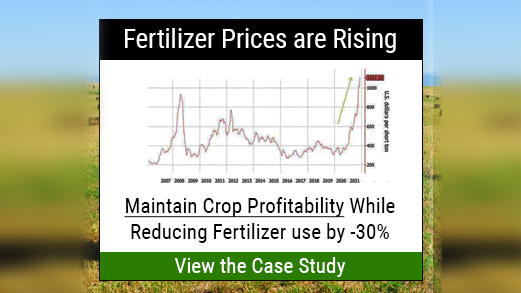A Taste of the Real World Can Do GenNext Growers Good
Joel Crist and Philip Glaize III always knew they wanted to be apple growers, and because of that, neither resisted when tradition called for them to say goodbye to the family farm for several years.
Crist, a fifth-generation grower from Walden, NY, and Glaize, a fourth-generation grower from Winchester, VA, recently attended USApple Association’s 2018 Apple Crop Outlook & Marketing Conference, where Glaize is on the board of directors. The two sat down with us following the conference, held annually in Chicago, to share their experiences and answer a few questions.
Crist, 30, says his parents simply wouldn’t allow him or his sister, Jennifer Crist Koon, to come back to the farm right after college.
“They said: ‘You don’t know what you’re missing unless you get out there,’” he recalls. “If we went back to the farm right away, we may have always wondered what we were missing. If I came back to the farm, I wanted it to be an active choice.”
Crist went to Cornell University and studied applied economics and management, essentially getting an undergraduate degree in business, on the theory his parents could teach him all he needed to know about horticulture.

Joel Crist
He then went to work at Daymon Worldwide based in Stamford, CT, specializing in the marketing of private label products, mostly food. He worked closely with retailers such as Meijer and Ahold, to the point he would be stationed in the offices of a chain’s buying team. He worked there for six years, returning home for the 2016 harvest.
Glaize, 32, says he, too, was expected to do something else before returning to the farm, as it’s a tradition. His great-grandfather, the founder of Glaize Apples, as well as his grandfather after him, went into the military. His father worked for a bank in Richmond, VA.

Philip Glaize III
“It’s a family business, and the family rule is to get at least four years of experience somewhere else and then you’re allowed to work for the family,” he says.
After graduating in 2008 from Colorado College where he studied international agriculture, he took a job with Red Jacket Orchards of Geneva, NY. But though the work he did was in the same state — The Big Apple — it was worlds away from the orchards.
Glaize managed logistics for a produce distribution warehouse in Brooklyn, NY, a job that required a lot of creative problem solving and working with all sorts of people, from the tough New Yorkers at Hunts Point to the Caribbean truck drivers.
“I learned a little bit about logistics,” he says, “and a lot about life.”
What is the most important lesson you learned from getting a job away from the farm?
Crist: Learning how to be an employee for someone other than your parents. In a lot of ways that has shaped how I manage my staff here. It sounds basic, but just learning what to do, what’s expected, and communication is important. I did internships, etc., but had never been a full-time employee outside of summer jobs.
Glaize: Being able to live on my own in the city. The majority of my peers went right back to the family farm. There’s definitely nothing wrong with that, but the longer I’m back, the more I talk with people who worked away from the farm or even tried a different career.
If you could give career advice to young people just getting out of college who plan on returning to the family farm, what would it be?
Crist: Even if you know how to grow something, you need to know how to sell it. You’ve got to get out and see how that really works at the end retail outlet. You have to know your buyers and customers. Do the buying or selling yourself or get involved with a company that does. That experience brings a lot more context to my decisions here that my family didn’t have before that.
Glaize: One piece of advice would be to shy away from the cultural need for instant gratification, because that doesn’t happen in farming. The more you can resist that need, the better off you’ll be as a farmer. It’s so easy to expect the answer right away, or for everything to make sense after you Google it, but growing apples is different from year to year. Be patient.









